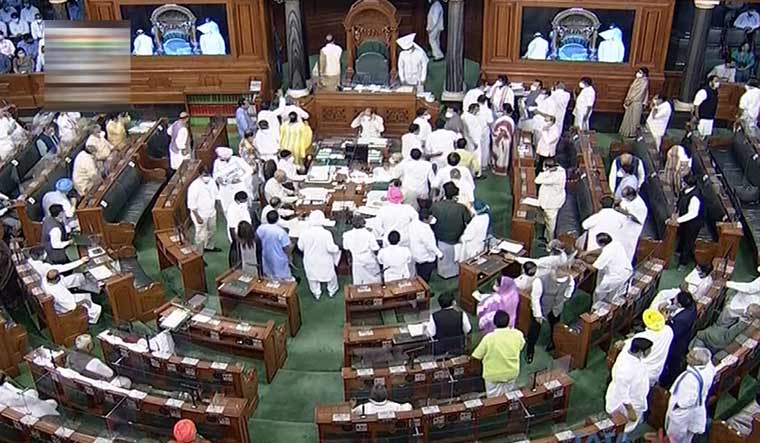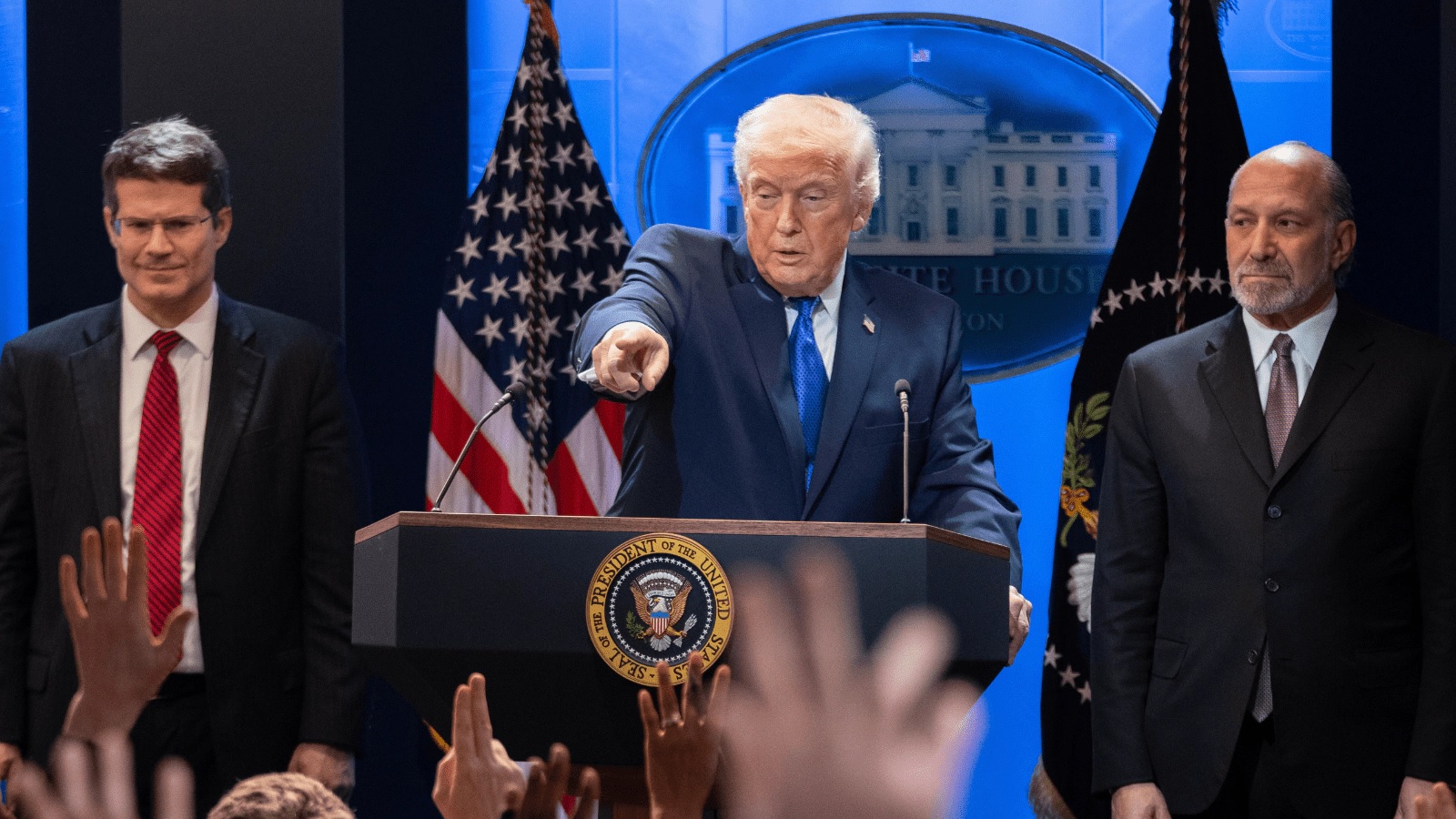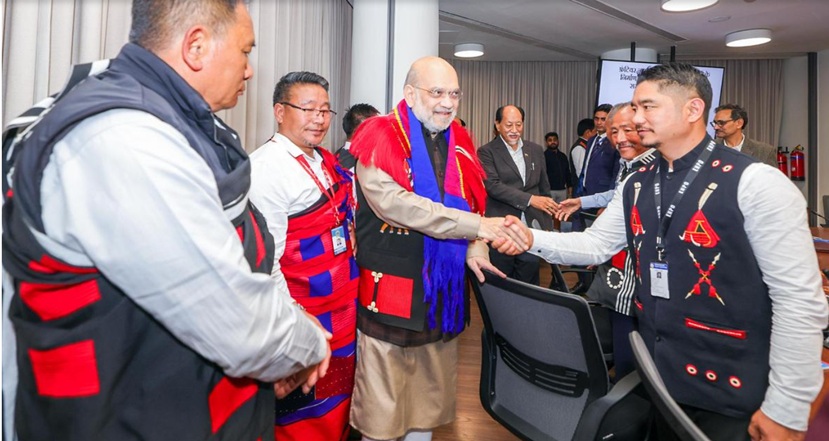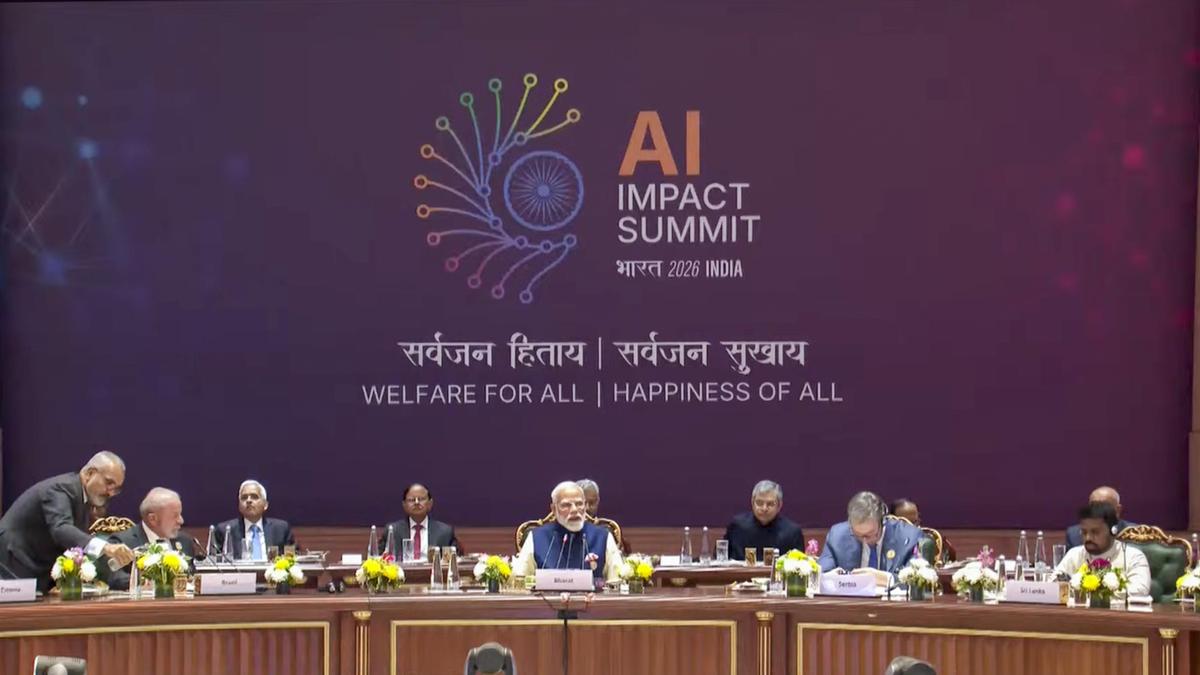What’s in today’s article?
- Why in News?
- What is a Privilege Motion?
- What is the Committee of Privileges in Parliament?
- Cases where the Privilege Motion led to the Expulsion from the House
- What is the Basis of the Recent Complaints against the MPs?
Why in News?
- Rajya Sabha Chairman referred complaints related to the privilege of the House against two MPs (TMC’s Derek O’Brien and AAP’s Raghav Chadha) to the privileges committee.
- This comes amid differences between the ruling party and some opposition parties that have plagued the ongoing Monsoon Session of its sittings.
What is a Privilege Motion?
- The Parliamentary privilege are certain rights conferred to the Members of Parliament (MPs) for conducting the business of the Parliament.
- There is no codified list of the exact privileges, but it includes the right of free expression in the course of Parliamentary debates and MPs will not be liable for court proceedings for this.
- If such a privilege is breached, a motion can be raised by any member and can be admitted by the RS Chairman.
- They can then refer it to the Privileges Committee under Rule 203 of Rules of Procedure and Conduct of Business in the Council of States/RS.
What is the Committee of Privileges in Parliament?
- This committee consists of 15 members in Lok Sabha (10 in case of RS) nominated by the Speaker (Chairman in case of RS) from time to time.
- In the RS, the deputy chairperson is appointed (by the RS Chairman) as the head of the committee of privileges.
- The committee examines every question involving a breach of privilege of the House or of the members or of any Committee referred to it by the Speaker/Chairman and makes suitable recommendations in its report.
- If the House has not fixed any time for the presentation of the report, it shall be presented within 1 month of the date on which reference to the Committee was made.
- Once presented, a motion has to be passed for the consideration of the report and amendments can be suggested.
- The right to raise a question of privilege is based on satisfying two conditions – the question shall be restricted to a specific matter of recent occurrence and the matter requires the intervention of the Council.
- The Speaker/RS Chairman is the first level of scrutiny of a privilege motion. Therefore, the Speaker/Chairman can decide on the privilege motion himself or herself or refer it to the privileges committee of Parliament.
Cases where the Passing of Motion led to the Expulsion from the House:
- A large number of notices are rejected, with penal action recommended in only a few cases.
- In 1978, Indira Gandhi, who had just won the LS elections from Chikmagalur, was expelled from the House. It was the culmination of a year-long investigation by such a committee in the LS.
- Then home minister Charan Singh moved a resolution of breach of privilege against her following observations made by the Justice Shah Commission, which probed excesses during the Emergency. Another case was the expulsion of Subramanian Swamy from the RS in 1976.
- He was charged with bringing disrepute to Parliament through his activities through interviews in foreign publications that were construed as “anti-India propaganda”.
What is the Basis of the Recent Complaints against the MPs?
- According to the RS secretariat, notice against O’Brien was filed for publishing the clippings of his statement made in the House on his Twitter handle, despite those being removed from the record by the chairman.
- The complaint against Chadha alleges an intentional and deliberate act of presenting misleading facts to the media with respect to the suspension of an AAP’s MP (Sanjay Singh) from the remaining period of the Monsoon session of RS.
Q1) What are the different sessions of Parliament of India?
By convention, Parliament meets for three sessions in a year. The longest is the Budget Session (January-April). The second session is the three-week Monsoon Session (July-August. The parliamentary year ends with a three week-long Winter Session, which is held from Nov to Dec.
Q2) What are the Standing Committees of the Parliament?
In the Indian Parliament, a Standing committee is a permanent and regular committee which is constituted from time to time according to the provisions of an Act of Parliament or Rules of Procedure and Conduct of Business.
Source: What is a Privilege Motion and how does the Committee of Privileges in Parliament examine it?
Last updated on February, 2026
→ UPSC Notification 2026 is now out on the official website at upsconline.nic.in.
→ UPSC IFoS Notification 2026 is now out on the official website at upsconline.nic.in.
→ UPSC Calendar 2026 has been released.
→ UPSC Final Result 2025 is expected to be released in the second week of April 2026.
→ Check out the latest UPSC Syllabus 2026 here.
→ Join Vajiram & Ravi’s Interview Guidance Programme for expert help to crack your final UPSC stage.
→ UPSC Mains Result 2025 is now out.
→ UPSC Prelims 2026 will be conducted on 24th May, 2026 & UPSC Mains 2026 will be conducted on 21st August 2026.
→ The UPSC Selection Process is of 3 stages-Prelims, Mains and Interview.
→ Prepare effectively with Vajiram & Ravi’s UPSC Prelims Test Series 2026 featuring full-length mock tests, detailed solutions, and performance analysis.
→ Enroll in Vajiram & Ravi’s UPSC Mains Test Series 2026 for structured answer writing practice, expert evaluation, and exam-oriented feedback.
→ Join Vajiram & Ravi’s Best UPSC Mentorship Program for personalized guidance, strategy planning, and one-to-one support from experienced mentors.
→ Check UPSC Marksheet 2024 Here.
→ UPSC Toppers List 2024 is released now. Shakti Dubey is UPSC AIR 1 2024 Topper.
→ Also check Best UPSC Coaching in India




















